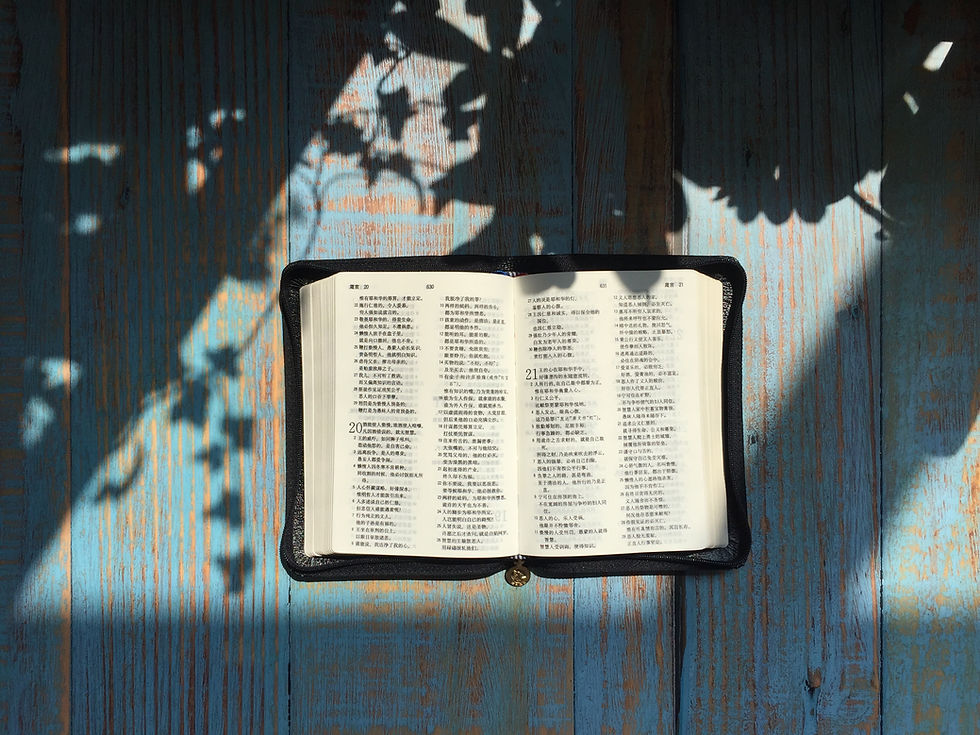Divine Justice and Cosmic Order: A Study of Psalm 82 in Ancient Hebrew Literature
- Leonardo Numberi
- Jun 17, 2024
- 3 min read

Psalm 82 is a poetic reflection found within the Book of Psalms that depicts a divine council where YHWH, the God of Israel, summons the gods or nations to hold them accountable for their injustices. This psalm highlights the concept of divine justice within the cosmic and social context of ancient Israel. In Psalm 82, YHWH sits among the gods to deliver judgment and reaffirm His authority as the only just God and ruler over the entire earth.
Within the historical and social context of ancient Israel, Psalm 82 reflects a shift in cosmological perspectives during the Babylonian exile period. This period not only prompted a reevaluation of YHWH's position in the eyes of the Israelites but also raised questions about cosmic justice before the just God. The psalm signifies a transition from viewing YHWH as the national god of Israel to recognizing Him as the supreme ruler who holds authority over all the earth and other nations.
The structure of Psalm 82 exhibits characteristic elements of ancient Hebrew complaint literature. The complaint is conveyed through rhetorical questions and calls for divine action, emphasizing the need for justice within the divine order as perceived by the ancient Israelite community. In this psalm, the belief in YHWH as the highest authority is underscored by questioning the accountability of the gods or other nations in administering justice on earth.
Psalm 82 is particularly notable for its portrayal of a divine council comprising gods or angels vested with authority to govern various aspects of the world. This perspective provides insight into how ancient Israelites viewed YHWH's relationship with other divine entities. YHWH's role in the psalm is not only as a just judge but also as a ruler with the authority to judge gods who fail to meet the standards of justice set by Him.
If compare Psalm 82 with other psalms such as Psalm 74, could gain a clearer understanding of how ancient Israelite society grappled with social and religious crises of its time. This comparison highlights differences and similarities in the rhetoric of complaint used to express the need for divine intervention in difficult situations.
It is crucial to understand Psalm 82 as part of ancient Hebrew literature that reflects the theology and worldview of ancient Israelite society. The psalm not only portrays a state of injustice necessitating divine intervention but also offers a theological solution by presenting YHWH as the sole ruler with complete authority over all things on earth.
The theological implications of Psalm 82 are significant in the context of the development of ancient Israelite theology. The psalm demonstrates an evolution in thinking about divine power and YHWH's role in reordering cosmic structures. By portraying YHWH as a fair judge of other gods or nations, the psalm invites readers to reconsider the essence of divine justice within a broader context.
In the rhetorical analysis of Psalm 82, we observe how the psalmist employs rhetorical questions and calls for change as tools to construct arguments for the need for divine justice. The language style used in this psalm provides a strong appeal to listeners or readers to reconsider their relationship with YHWH and their social responsibilities as the chosen people.
The historical context of the Babylonian exile and its influence on Hebrew literature, including Psalm 82, is a crucial aspect of understanding the theological and cosmological evolution of ancient Israel. Changes in perspectives on divine authority and YHWH's role in confronting social challenges of the time are reflected in the background of this psalm.
Comparing Psalm 82 with other psalms, such as Psalm 74, offers a deeper understanding of the theological innovations presented in this psalm. While Psalm 74 expresses grievances over the destruction of the Holy Temple and the chaotic state of Israel, Psalm 82 focuses on questions of justice at a cosmic level and divine intervention against gods or nations that do not adhere to YHWH's standards.
Conclusion
Psalm 82 is a significant literary work in ancient Hebrew literature that not only depicts social and religious crises of its time but also presents views on divine justice and YHWH's role in reordering cosmic structures. Using powerful rhetorical language and stimulating literary style, this psalm encourages us to reconsider our relationship with YHWH as the just and sovereign God over all the earth.
Source:

Comments